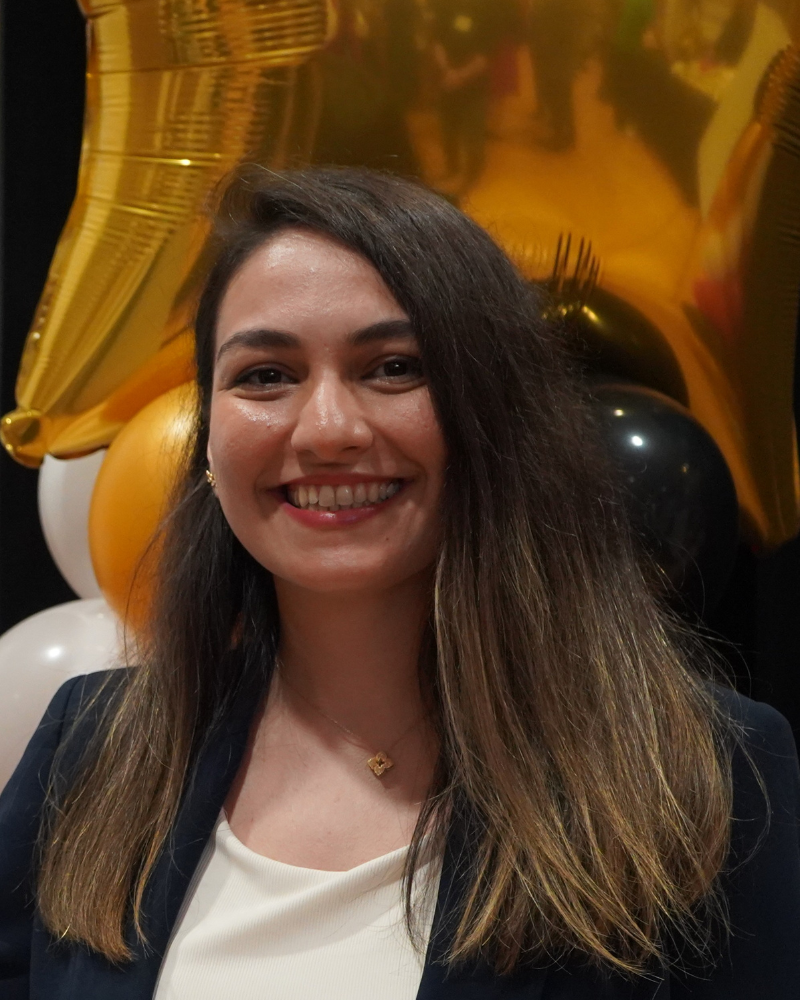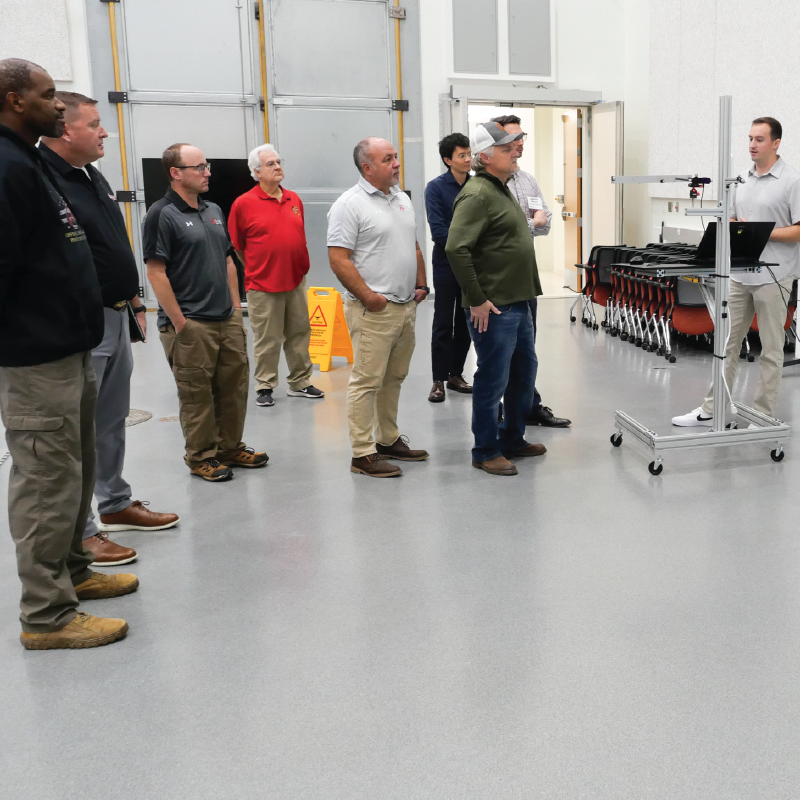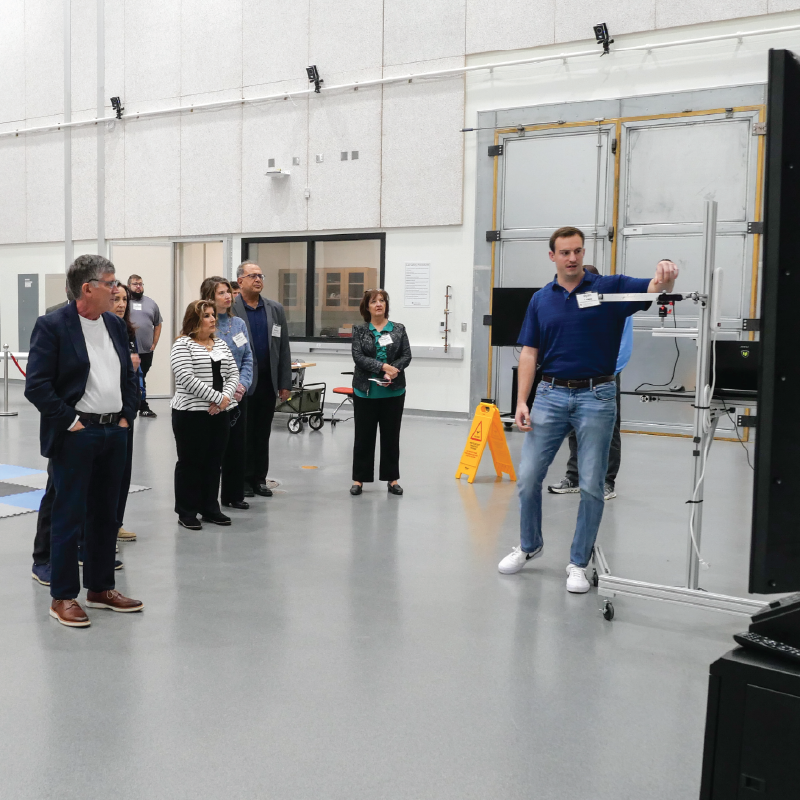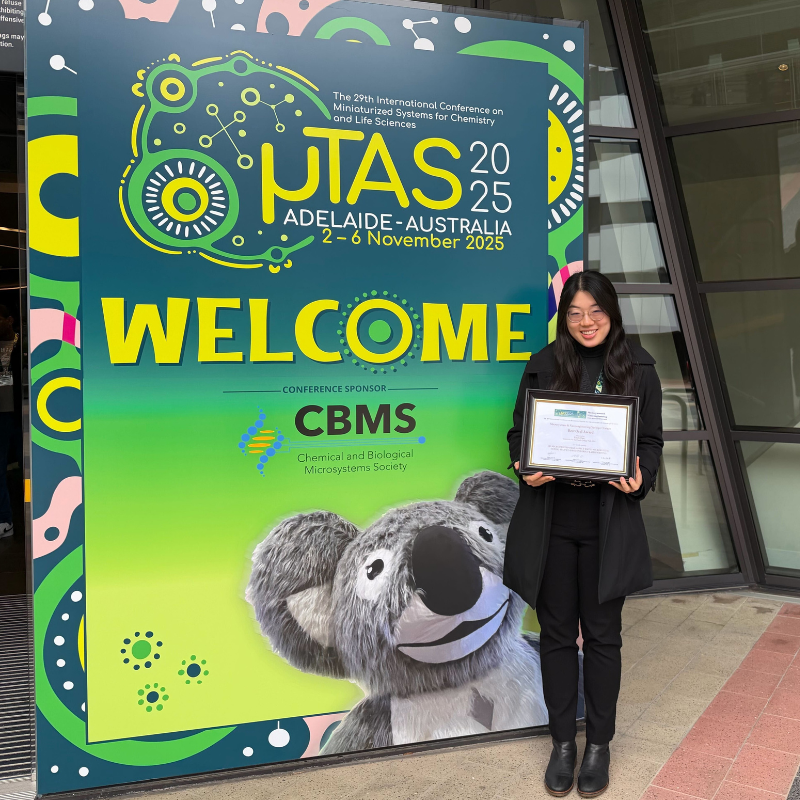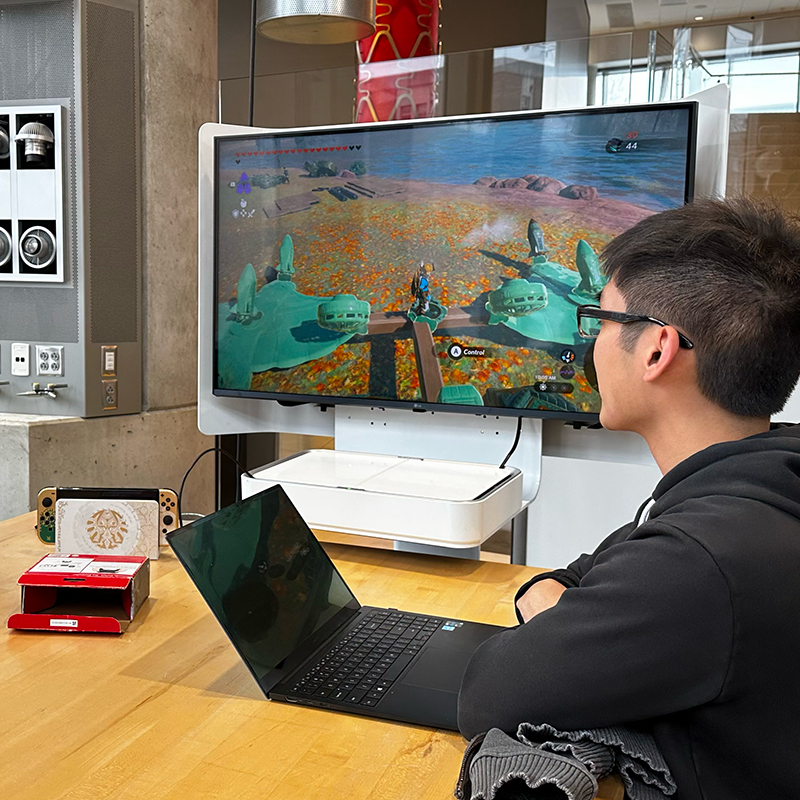News Story
ISR Honors 2025 Graduate Achievements
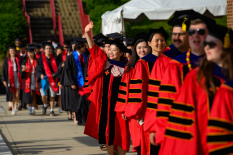
|
Sara Honarvar, Ph.D. in Mechanical Engineering Learning and Collaboration in Distributed Human-Robot Systems Sara Honarvar’s interdisciplinary research integrates biomechanics, kinesiology, and robotics to develop algorithms that enable humans and robots to work more effectively together. As a Ph.D. candidate in the Collaborative Controls and Robotics Laboratory, Honarvar has studied interaction behavior in distributed intelligent systems, producing insights that contribute to safer and more intuitive human-robot collaboration. Her path to ISR includes dual bachelor’s degrees in biomedical and mechanical engineering and an M.A. in Kinesiology from UMD, reflecting a deep, cross-disciplinary foundation. After graduation, Honarvar will join Apple Inc. as a Control System Engineer on the Platform Architecture team, where she will apply her expertise to next-generation technology integration. |
|
Xiaomin Lin, Ph.D. in Electrical and Computer EngineeringVision-Based Robotics for Sustainable Environmental Monitoring Xiaomin Lin’s doctoral research has focused on intelligent robotic systems that support long-term environmental monitoring in remote and underwater environments. As a member of the Perception and Robotics Group led by Professor Yiannis Aloimonos, Lin has made significant contributions to the USDA-funded Smart Sustainable Shellfish Aquaculture Management (S3AM) project, where he helped design autonomous vision-based solutions for sustainable shellfish farming. Currently a postdoctoral research associate at Johns Hopkins University, Lin will join the University of South Florida as an Assistant Professor this fall. His faculty research group will focus on energy-efficient AI for autonomous systems operating in austere environments—extending his mission to design resilient, intelligent platforms that benefit environmental science and sustainability. |
|
Mahshid Noorani, Ph.D. in Electrical and Computer EngineeringAI and Machine Learning for Secure Cyber-Physical Systems Mahshid Noorani’s doctoral work sits at the intersection of artificial intelligence, machine learning, and network security, with a strong emphasis on cyber-physical systems (CPS) and networked CPS. Under the mentorship of ISR Founding Director and Distinguished University Professor John Baras, Noorani has developed novel approaches for trust, learning, and resilience in critical infrastructure—research that is gaining traction with industry leaders including Comcast, Microsoft, and Lockheed Martin. A Clark Fellow, the Clark School’s most prestigious honor for graduate students, Noorani brings six years of industry experience to her academic portfolio. One of her key and novel accomplishments is detection of, and defense against, anomalous behavior of real-life autonomous CPS systems, like an autonomous ground vehicle; anomalies due to internal and external attacks on the sensor data flows and/or the robot computer systems. Her work bridges foundational systems theory with real-world security challenges and positions her as a future leader in trusted AI systems for connected technologies. |
|
Yiling Qiao, Ph.D. in Computer Science, AI, and RoboticsFoundations of Simulation for Generalist Robots and Embodied AI Yiling Qiao’s Ph.D. research, advised by Professor Ming Lin and conducted within the UMD GAMMA Group, blends physically based simulation, machine learning, and computer graphics to develop training environments for embodied artificial intelligence. His groundbreaking work has earned recognition through the Meta PhD Fellowship and the Larry S. Davis Dissertation Award. Among Qiao’s major contributions is Genesis, a generative simulation platform that creates complex virtual environments for robotics and AI training. Shortly before graduating, Qiao co-founded a startup to commercialize this technology for generalist robot development. Backed by significant venture capital investment, the company is advancing scalable simulation for autonomous systems across industries. |
 Joshua Aaron Levy, Ph.D. in Materials Science and Engineering Joshua Aaron Levy, Ph.D. in Materials Science and Engineering
Ingestible Technologies for Localized Drug Delivery Joshua Aaron Levy’s doctoral research focused on developing ingestible systems for targeted drug delivery in the gastrointestinal (GI) tract. Drawing on a dual undergraduate background in physics and chemistry from Binghamton University, Levy brought a multidisciplinary approach to the materials science and engineering challenges at the core of his dissertation. Since joining the University of Maryland in 2020, he has made significant contributions to the advancement of controlled-release drug delivery technologies, leveraging his expertise in materials engineering to improve treatment precision and patient outcomes. Levy’s academic excellence has been recognized with several notable honors, including the George Harhalakis Outstanding Graduate Student Award and the Janusz Bryzek Award for Abundance in MEMS. These awards underline the scientific impact and practical promise of his work in biomedical systems. |
 Michael Straker, Ph.D. in Bioengineering Michael Straker, Ph.D. in Bioengineering
Low-Power Ingestible Systems for Gastrointestinal Biopsy Michael Straker’s doctoral work, advised by Professor Reza Ghodssi in the MEMS Sensors and Actuators Lab, has centered on creating low-power ingestible systems for feedback-driven gastrointestinal biopsy. His research combines biomechanics, microfabrication, biomaterials, and mechanical systems to address a pressing need in GI health diagnostics. By advancing the development of miniaturized biopsy devices, Straker aims to make gastrointestinal screening more accessible and less invasive for patients worldwide. Straker was awarded the prestigious 2024 Fischell Fellowship in recognition of the transformative potential of his research. He was also a finalist for the 2024 Invention of the Year Award, and his contributions have resulted in seven intellectual property filings to date—demonstrating a strong trajectory of innovation in biomedical engineering. |
Published May 21, 2025
